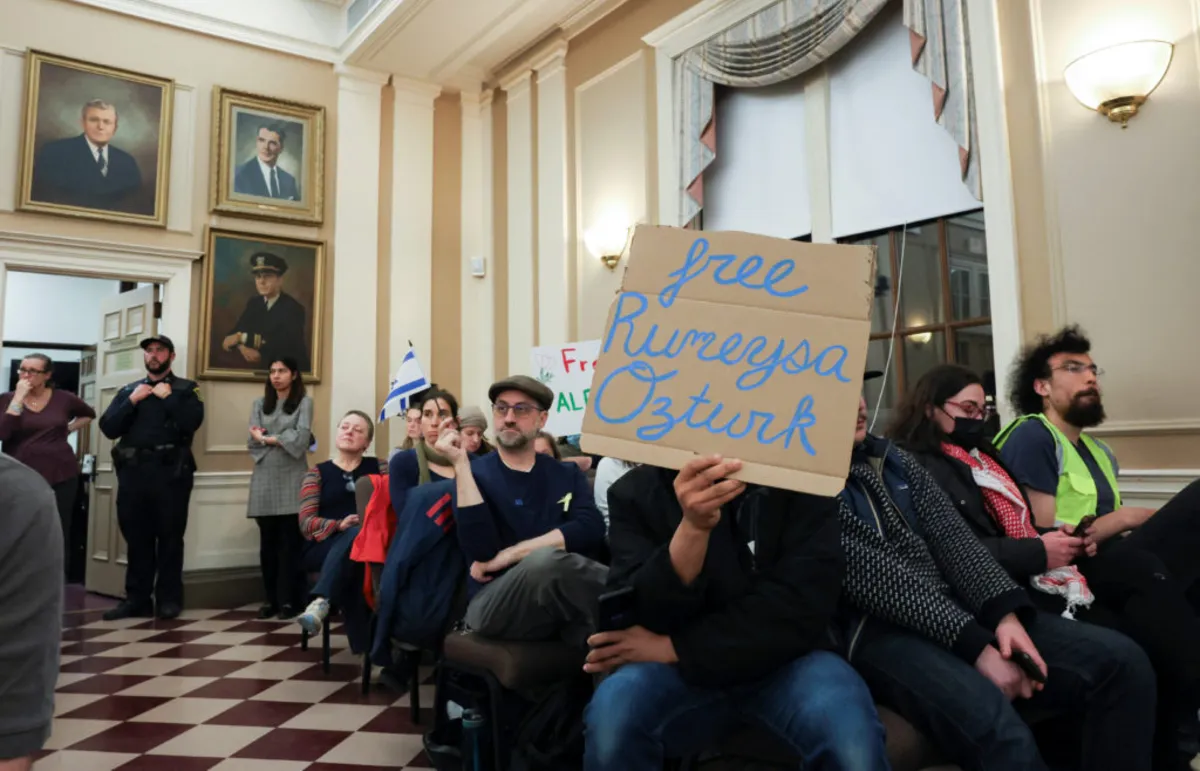
BOSTON (AP) — A significant development occurred this week involving Rumeysa Ozturk, a 30-year-old doctoral student at Tufts University, who was detained by immigration officials in Massachusetts. On Tuesday, Ozturk was apprehended by masked agents while walking in the Boston suburb of Somerville. Following her detention, a federal judge ruled that she cannot be deported to Turkey without a court order, highlighting the legal complexities surrounding her case.
On Friday, U.S. District Court Judge Denise Casper issued a ruling that prevents the government from removing Ozturk from the United States until further notice. The judge mandated that the government respond to an updated complaint filed by Ozturk's legal team by Tuesday evening. In her order, Judge Casper emphasized, “To allow the Court’s resolution of its jurisdiction to decide the petition, Ozturk shall not be removed from the United States until further order of this court.” This decision is a critical step in addressing the legal rights of international students facing deportation.
Ozturk's detention is part of a broader trend where individuals with ties to American universities, particularly those who have publicly supported Palestinian causes, have faced scrutiny. Reports indicate that several students have had their visas revoked or been prevented from entering the U.S. after participating in demonstrations related to the ongoing conflict in Gaza. Ozturk's attorneys were working to secure a legal order to block her transfer to an Immigration and Customs Enforcement (ICE) detention center in Basile, Louisiana, when she was moved there.
According to a spokesperson from the Department of Homeland Security, Ozturk's visa was terminated based on allegations that she engaged in activities supporting Hamas, a group designated as a terrorist organization by the U.S. government. However, the department has not provided any evidence to substantiate these claims. The context of these allegations comes after Hamas's assault on Israel on October 7, 2023, which resulted in significant casualties and hostages.
Ozturk has been involved in activism, particularly through an op-ed published in The Tufts Daily last year. In this piece, she and three other students criticized the university for not adequately addressing demands to acknowledge the "Palestinian genocide" and to divest from companies linked to Israel. Friends of Ozturk have stated that while she was vocal about her views, she was not heavily involved in the protests against Israel.
This case raises important questions about the rights of international students in the U.S. and the implications of U.S. immigration policy. The Trump administration had previously invoked a little-used statute allowing the Secretary of State to revoke visas of noncitizens deemed threats to U.S. foreign policy interests. As Ozturk's situation unfolds, it serves as a poignant reminder of the challenges faced by international scholars in the current political climate.